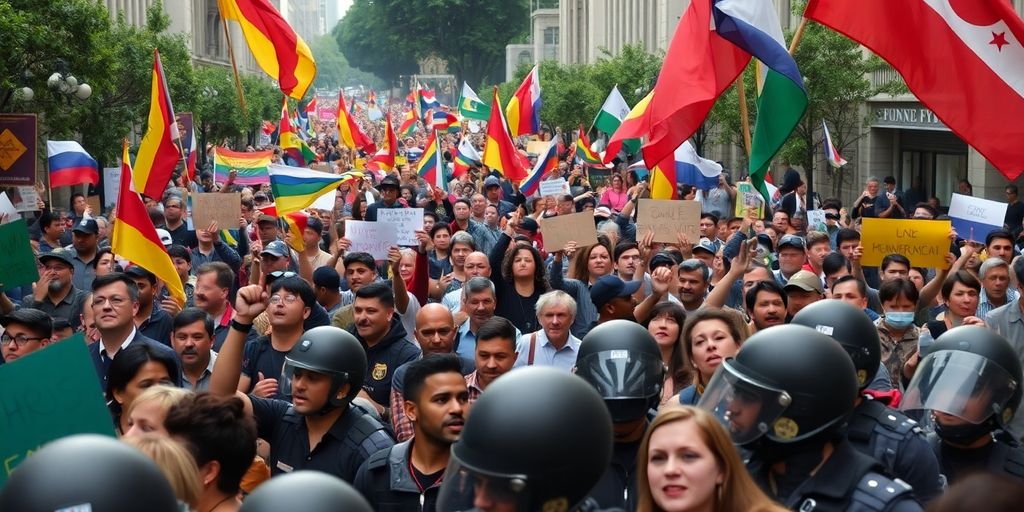Mass protests have erupted across Turkey following the arrest of Istanbul Mayor Ekrem Imamoglu, a prominent opposition figure and potential presidential candidate. His detention has sparked the largest anti-government demonstrations in over a decade, with thousands taking to the streets in cities nationwide.
Key Takeaways
- Ekrem Imamoglu, Istanbul’s mayor, was arrested on corruption charges, widely seen as politically motivated.
- Protests have spread across Turkey, with nearly 1,900 people detained amid clashes with police.
- The opposition party, CHP, vows to continue demonstrations until Imamoglu is released or early elections are called.
Background of The Protests
The protests began on March 19, 2025, when police arrested Imamoglu at his home, just days before he was expected to be named the Republican People’s Party (CHP) candidate for the 2028 presidential election. His arrest followed the revocation of his university degree, a move perceived as an attempt to disqualify him from running for office.
Imamoglu’s supporters view his arrest as a direct attack on democracy and a tactic by President Recep Tayyip Erdogan to eliminate a significant political rival. The mayor has been a vocal critic of Erdogan’s government, which has faced increasing scrutiny over its authoritarian tendencies and handling of the economy.
Scale of The Protests
The demonstrations have drawn massive crowds, with reports indicating that hundreds of thousands have participated in protests across major cities, including Istanbul, Ankara, and Izmir. The protests are characterized by a mix of peaceful gatherings and violent clashes with police, who have responded with tear gas, rubber bullets, and water cannons.
- Protest Locations:
- Detentions:
Government Response
The Turkish government has condemned the protests, labeling them as acts of violence and street terrorism. Interior Minister Ali Yerlikaya stated that some protesters were linked to terrorist organizations, justifying the crackdown on demonstrations. Erdogan has dismissed the protests as a temporary show of dissent, asserting that the government will not tolerate disruptions to public order.
In response to the protests, the CHP has called for continued demonstrations, emphasizing the need for public mobilization against what they describe as a civilian coup. The party’s chairman, Ozgur Ozel, has urged supporters to rally in every city until their demands are met.
Implications for Turkish Politics
The ongoing protests and Imamoglu’s arrest have raised concerns about the future of democracy in Turkey. Analysts suggest that the government’s actions could lead to further political instability and a potential shift towards a more authoritarian regime. The situation has also drawn international attention, with calls for the Turkish government to respect democratic principles and human rights.
As the protests continue, the CHP is positioning Imamoglu as a key figure in the upcoming presidential election, rallying public support around his candidacy. The outcome of these events could significantly impact Turkey’s political landscape in the years to come.
Conclusion
The arrest of Ekrem Imamoglu has ignited widespread protests across Turkey, reflecting deep-seated frustrations with the current government. As the situation unfolds, the response from both the government and the opposition will be crucial in shaping the future of Turkish democracy and governance.
Sources
- Turkey detains nearly 1,900 in protests over jailed mayor, rejects foreign criticism, Reuters.
- CHP vows protests will continue ‘in every city’, BBC.
- Turkey arrests journalists after President Erdogan’s top rival is jailed, AP News.
- Huge pro-democracy protests grip Turkey after Erdogan rival is imprisoned, NBC News.
- Turkey is in Turmoil as Millions Protest the Arrest of Istanbul’s Mayor, New Lines Magazine.






